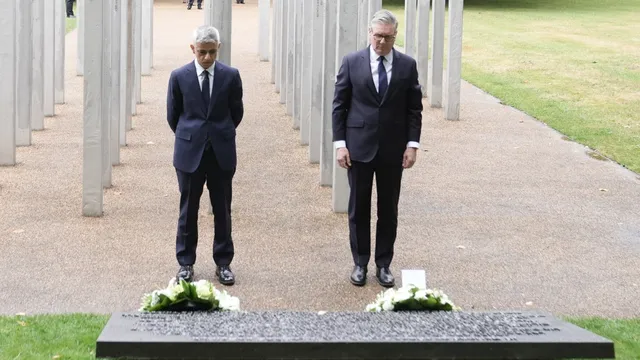
King Charles III honors 20 years since deadly London bombings
2025-07-07 13:11- The 20th anniversary of the London bombings was marked with commemorative events across the UK.
- King Charles III urged for unity and compassion in remembrance of the lives lost.
- The legacy of the 7/7 attacks continues to influence national security discussions and policies.
Express your sentiment!
Insights
On July 7, 2025, the United Kingdom commemorated the 20th anniversary of the devastating London transport bombings that occurred in 2005. King Charles III led the remembrance ceremonies, which included significant events at the 7/7 memorial in Hyde Park, as well as a formal service of commemoration at St. Paul's Cathedral. The attacks, orchestrated by Islamic extremists, resulted in the deaths of 52 innocent people and left over 700 others injured, marking one of the darkest days in British history. The date was significant not only due to the remembrance of lost lives but also because of the reflection on the increased threat of terrorism that still looms over the nation. In his message, King Charles III expressed his heartfelt thoughts and prayers for all individuals affected by the attacks, underscoring the importance of unity and community in the face of tragedy. The King called for a renewed commitment to fostering a society that embraces individuals of all faiths and backgrounds, emphasizing the need to resist those who seek to create division. He highlighted that the spirit of compassion that emerged after the bombings serves as a reminder of humanity's capacity for good despite the horrors of that day. Accompanying the King in these commemorations were other members of the royal family, including the Duke and Duchess of Edinburgh, who participated in a national service at St. Paul's Cathedral. Additionally, various political leaders and emergency responders contributed to the events, laying wreaths and sharing memories from that tragic day. Notably, Home Secretary Yvette Cooper also provided insights, stating the ongoing threat posed by extremist terrorism, both Islamist and right-wing, which continues to challenge national security. As the nation reflects on the impact of the attacks two decades later, ceremonies throughout London aimed to honor the bravery of the first responders and the resilience shown by citizens who acted selflessly during the crisis. The 7/7 bombings prompted significant changes in the UK’s approach to counter-terrorism, with a commitment to evolving strategies to address threats and safeguard the public. Remembering such events underscores the ongoing need for vigilance and community solidarity as the country faces modern security challenges.
Contexts
The 7/7 bombings, which occurred in London on July 7, 2005, were a series of coordinated suicide attacks that targeted the city's public transport system during the morning rush hour. The attacks resulted in 52 civilian deaths and over 700 injuries, marking one of the deadliest terrorist acts in British history. The impact of these bombings on British society was profound, triggering immediate changes in national security policy, public perception of terrorism, and the social fabric of the nation. The incident heightened the awareness and fear of terrorism among the British populace, which led to widespread discussions about safety, security, and the responsibilities of both citizens and the government in preventing future attacks. It also intensified scrutiny on the role of multiculturalism and integration within British society, as the attackers were identified as British Muslims, which sparked debates about radicalization and the relationship between minority communities and the state.